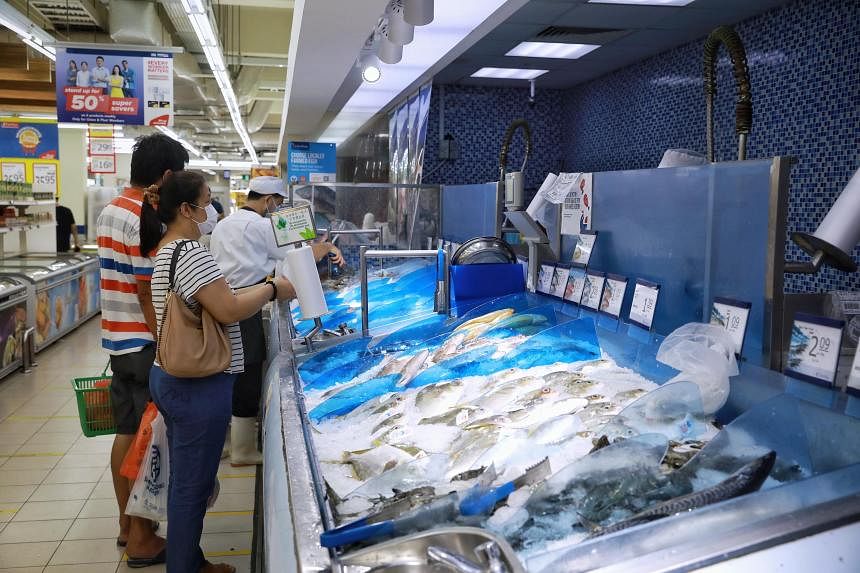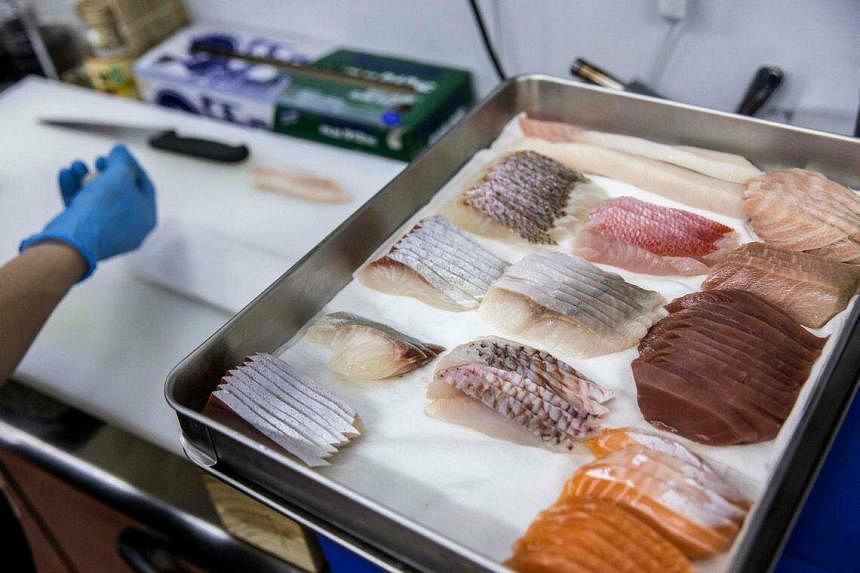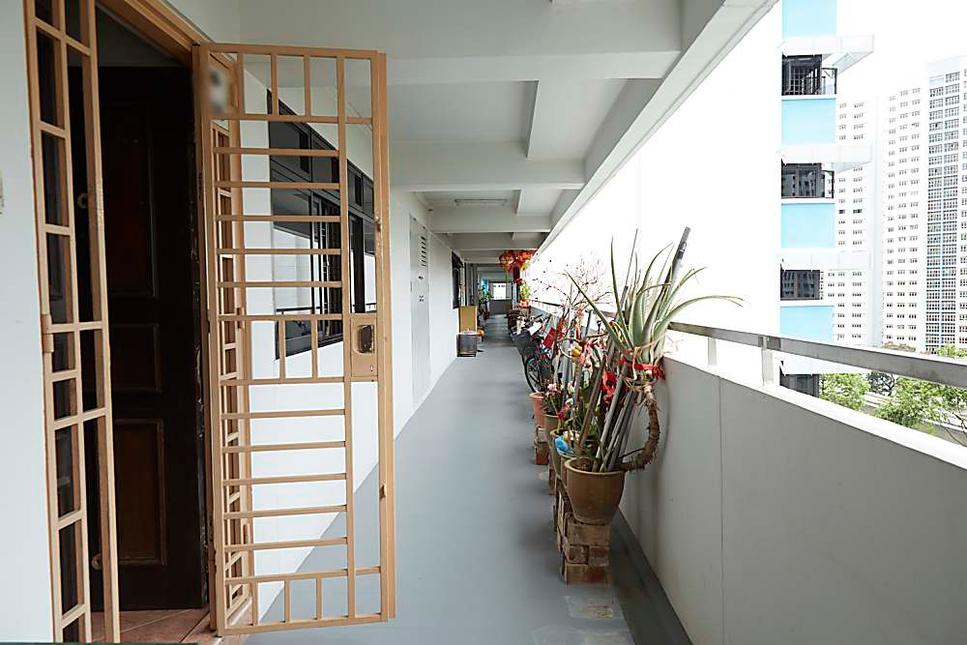askST: Is seafood from Japan safe to eat? Can salt protect against radiation?

SINGAPORE – Since Japan started releasing treated water from the wrecked Fukushima nuclear power plant last Thursday, countries in the region have seen panic buying of salt amid fears of radioactive contamination.
Chinese government officials have urged anxious consumers not to hoard salt. Beijing has also announced a ban on all Japanese seafood imports.
The Singapore Food Agency (SFA) has said that there will be no immediate ban on seafood from Japan following the release of treated water.
The Straits Times spoke to health and environment experts to understand if salt is an antidote for radiation, and whether it is still safe to consume seafood and salt from Japan.
Q: Are table salt and sea salt an antidote for radiation?
A: No, table and sea salt have no known radioactive blocking activity, said health experts.
Professor William Chen, director of Singapore Future Ready Food Safety Hub (Fresh), a research hub formed jointly by Nanyang Technological University (NTU), the SFA and the Agency for Science, Technology and Research, said that the only salt reported to be able to block radioactivity is potassium iodine.
But potassium iodide blocks the absorption of radioactive iodine, and this is not relevant amid Japan’s discharge of treated water as the radioactive element present is tritium, said Prof Chen.
Q: Is it still safe to eat salt and seafood from Japan?
A: Experts said that eating seafood and salt from Japan as part of a balanced diet should not pose a significant risk to Singaporeans but the long-term impacts need to be monitored.
Prof Chen said that Japan’s discharged treated water is at a much lower radioactive level due to its treatment before release, and also the vast dilution from seawater upon release.
Dr Choo Bok Ai, senior consultant in radiation oncology at Singapore-based Icon Cancer Centre, said the best way to quantify the risk is to conduct random sample testing of radioactivity in seafood from Japan.
The SFA has maintained its position on the safety of food from Japan, saying its surveillance results, including for radiation, have been satisfactory.
The agency added that it will continue to monitor food imports from Japan closely to ensure that they comply with Singapore’s food safety requirements.
Dr Choo added that the level of risk in consuming seafood and salt from Japan is dependent on three factors.
The first is the amount of seafood and salt one consumes. The second is the distance between the source of the treated water and where the seafood is caught.
Seafood caught closer to coastal Japan will have a higher radioactivity than seafood caught in Singapore waters and the South China Sea.
The last factor is the type of radioactive sources one consumes. This is because the half-life, which is the length of time it takes for half of the radioactive atoms of a specific radionuclide to decay, differs. Tritium, which is present in the treated water, has a half-life of 12 years.

Q: Why are people in countries such as China and South Korea hoarding salt?
A: Prof Chen said that shoppers may be mass buying sea salt to prevent perceived future contamination from tritium.
He warned that an overconsumption of salt could lead to adverse health problems like high blood pressure.
Q: What health problems could arise from consuming radioactive seafood or salt?
A: Dr Choo said that general exposure to radiation increases the risk of cancer and lowers the function of organs.
He said that the radiation from seafood or salt from Japan is negligible, as only a persistent high level of radiation exposure can cause a small increase in cancer risk or affect the functions of organs such as the thyroid gland.
However, it may take more than 10 years before any initial exposure to radiation causes cancer.
“Even for my cancer patients whose treatment requires them to be exposed to radiation hundreds of times more than in radioactive seafood, the long-term complications can arise many years later,” said Dr Choo.
Q: Does radioactivity particularly concentrate in seafood?
A: Whether radioactivity concentrates in seafood depends on the radioactive element, said Associate Professor Patrick Martin from NTU’s Asian School of the Environment.
While some radioactive elements can accumulate in seafood, the concentrations of these elements in Japan’s discharged treated water is low and the radioactivity will be diluted quickly by ocean currents.

Read the full story for $0.99/month
Save more than 90% on your subscription and get over 500 subscriber-only articles every month.
ST All-Digital Package - Monthly
$29.90 $0.99/month
No contract
$0.99/month for the first 3 months, $29.90/month thereafter. T&Cs apply.
Unlock these benefits
Get subscriber-only articles on ST Web and app
Easy access on up to 4 devices
2-week e-paper archive to ensure you never miss out on news that matters to you
Join ST's WhatsApp Channel and get the latest news and must-reads.










No comments:
Post a Comment